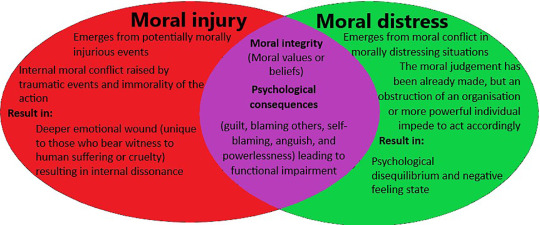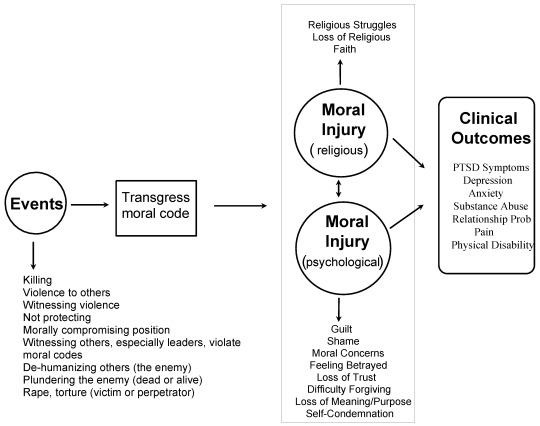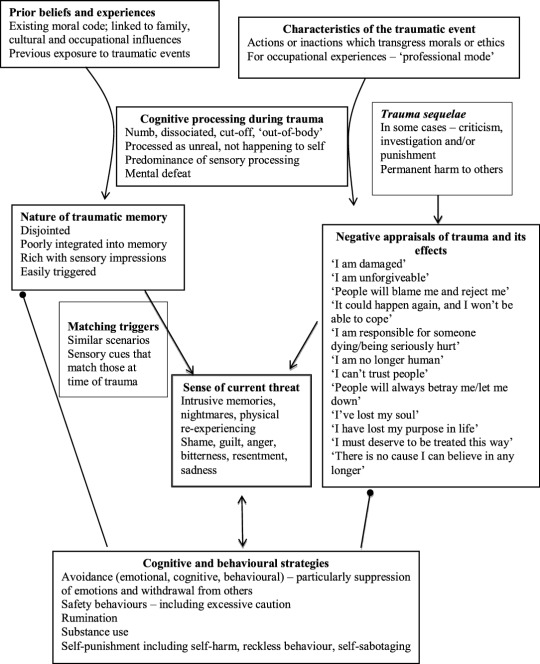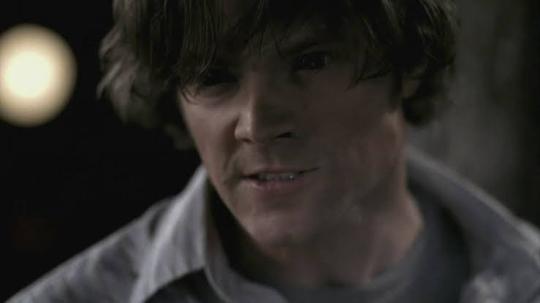#moral nihilism
Text
a lot of anti-nihilists are just fundamentally misunderstanding what nihilism is, especially moral nihilism.
the idea of objective morality creates a binary of immoral/moral, where if something is not immoral it has to be moral, and since you have to dislike everything immoral, you have to like everything moral.
the thing about moral nihilism though, is that there is no objective good and evil binary. and this is where moral objectivists and anti-nihilists get tripped up, because nihilists saying [taboo/harmful thing] isn’t inherently immoral makes objectivists think nihilists are saying that means it’s moral, which we are not. amoral =/= moral and that’s really hard to understand if you don’t already reject the binary of moral/immoral present in moral objectivist and anti-nihilist thought.
also something to keep in mind is you can argue against things in ways other than morality, and you’re not obligated to like things that aren’t immoral. someone could steal my phone, and since egoism that would technically be their phone, plus it wouldn’t be an inherently immoral act, but like that doesn’t mean i have to be okay with someone just like stealing shit from me
8 notes
·
View notes
Photo

Sculduggery 178
Moral Nihilism
#nowicantlose#sculduggery 178#moral nihilism#nihilism#debate#gun#violence#argument#murder#comic#webcomic
4 notes
·
View notes
Text
It's 3:19 am and I'm arguing with moral nihilists on twitter, watching mfs willingly say they'd be as evil as possible at any given opportunity for nothing but the chance to do so and maybe some money before they get clapped themselves...
this oddly makes me feel good about my life choices and chosen associates
2 notes
·
View notes
Text
I don't have double standards in morally judging people because I don't morally judge people (or rather, I try not to).
0 notes
Text
Why Moral Nihilism is Problematic | The Retrospective
Old article, but certainly relevant today.
0 notes
Text
HATE that i thought "hahaha is this sans and papyrus undered tale" cuz of the eye thingy and then i actually read the post and i was like oh. this IS sans and papyrus undered tale
#the crushing nihilism in the face of hopelessness/joy and whimsy as survival dichotomy...#the only thing that's different is that undertale OVERALL is about the second example#so while the first IS presented and represents sans' main internal conflict as a character who knows about the anomaly#undertale's story is perpetually driving you towards the second. because as a videogame ut is wish fulfillment for happy endings#it's a literal response to the genre assumption that violence IS the answer that the enemies' lives ARE meaningless#as opposed to a meditation on the meaning of Actual Real Life#but it still gives you a choice! as the player it's up to you to choose which version of the world to confirm#and still. it's so important how even if you choose violence and destruction you do nothing but confirm sans' fears#and then what? he can't truly stop you. not in the grand scheme of things. sure his apathy was right but what did he gain from that#papyrus dies with hope#papyrus moral compass of the entire game my beloved#undertale#entry log#papyrus#sans
217 notes
·
View notes
Text
every time i see people trying to argue with moash's worldview on a serious ideological level i think of how he has an evil bridge four uniform and flew into a mountain and kicked my dog in the face and body.
#like more generally its just so uninteresting to give me a PowerPoint about why a character is wrong. morally or politically or whatever#i just don’t care i don’t need you to explain to me why nihilism is Bad?? the interesting part is why he’s Like That.#but specifically with moash its just the lowest hanging fruit possible lol
9 notes
·
View notes
Text
Nietzsche and Nihilism
If there's one thing that really grinds my gears it's when people treat Nietzsche as some sort of face of nihilism. I think anyone who is well-versed in Nietzsche's work would agree that the guy is definitely not a nihilist, as he is very openly against it in almost all his works.
I believe this misunderstanding of Nietzsche's philosophy mostly comes from the averages person's understanding of worth.
When Nietzsche said, "God is dead," he was referring to the objective meaninglessness of the world. A lot of people take this at face value, understanding objective meaninglessness as absolute meaninglessness. However, this is not the point Nietzsche was trying to make at all.
In our age of enlightenment values and reason, the western man values objectivity and shuns subjectivity (If you want to read more about the negative effects of enlightenment principles, Max Horkheimer and Theodor W. Adorno's Dialectic of Enlightenment is great). This sort of "facts over feelings" mindset is exactly what led to the nihilist interpretation of Nietzsche being so common. When people read that this guy thinks that objective meaning does not exist, they can't fathom any other meaning existing, because their whole life has been built around putting objectivity on a pedestal, they cannot begin to think about finding anything of significant value through their own subjectivity.
However, this is exactly what Nietzsche is proposing in his work. Objective meaning may be gone, but that does not mean that meaning is impossible, we should instead chose what has meaning to us, based on our own subjectivity. That is what he means when he speaks of the "will to power." My personal understanding of the will to power is simply the desire to be yourself ("simply" is perhaps the wrong word, it's much more nuanced than just "being yourself" but I think it sums it up nicely).
In fact, Nietzsche's main criticism of the modern Christian church was actually that it was "necessarily nihilistic." Modern Christianity puts all its focus on the afterlife. Even if they claim to be worried about being kind and spreading the truth of God, at the end of the day they are only doing that so they can go to heaven when they die. Taking the emphasis off of this life and placing it on the afterlife is precisely what makes modern Christianity nihilistic to its very core.
A notion Nietzsche touches on briefly after his denouncement of modern christianity is that of eternal recurrence. On this, he claims that we should live our lives in such a way that we would be happy to live it over and over again for all eternity. A lot of people dislike this claim, and point out that a lot of people aren't born in circumstances in which they can be happy over and over again (ex: because of poverty, discrimination, political situations). I don't disagree with this at all, there are an incredible amount of people who have to live in situations out of their control which make them unhappy with their life. However, you have to remember that Nietzsche is much more metaphysically inclined. When he says you should live a life you would want to life over and over again, he is more talking about the person you are. You should make choices about your virtues and your morals which would make you happy about the person you are, so much so that you would want to be you over and over again, no matter your external circumstances.
I actually used to hate Nietzsche, as I had only heard of him through this sort of depressed high school boy view that twisted him into a nihilist. However, once I read him for myself, I found his message extremely inspiring, and helped me mentally a lot. The idea of being yourself no matter your circumstances is a beautiful one, and I think it's really sad that most people just view Nietzsche as the nihilism guy.
Remember to be yourself!!!! Nietzsche said so!!!!!!
For anyone who wants to read it, here's a bonus question from an exam that I took this semester where I basically said the same thing as above, but it's worded more concisely I think:
"It is often claimed that Nietzsche is a nihilist and his philosophy is nihilistic in nature. Do you agree with this claim? Indeed what is behind Nietzsche’s denying modern society, traditional values, morality, and Christianity? How would you argue?
I strongly believe that Nietzsche is not a nihilist. In his claim that there are no objective virtues, he is not negating the meaning of human life, he is stating that there are no universal values. I think a lot of the misunderstanding of this claim making Nietzsche a nihilist comes from people's view of subjective vs objective value. Objective values are not inherently more "real" than subjective ones, and I believe this is where the most common mistake is made. Nietzsche advocating for subjective virtues does not make these virtues any less significant than objective ones. Life still has meaning, but it's up to every individual to decides on those virtues for themselves. In Nietzsche's denying of society, traditional values, morality, and Christianity come from his advocation of individuality, and subjective values. He denies society, and Christianity because it values a slave mindset, and thus hatred (ressentiment) of "the other," even denouncing modern Christianity for being "necessarily nihilistic" for focusing on the afterlife rather than our current one. He denies traditional values as well as morality because they are both discussed from a universal, objective standpoint. In all four of these, he does not deny them because they give meaning to life, or because he advocates for people doing whatever they want, he denies them because they take away the existential value of the individual. Thus, I would conclude that Nietzsche is definitely not a nihilist. Life's meaning is not removed when we don't have the guiderails of the objective to tell us how to make choices. If anything, life would have a more personal, passionate meaning when the individual gets to decide for themselves what gives their life meaning."
#nietzche#friedrich nietzsche#existentialism#nihilism#philosophy#western philosophy#continental philosophy#the enlightenment#morality#ethics#critical theory
9 notes
·
View notes
Text
the fun thing about making a comic where i've vaguely appropriated the aesthetics of christianity but entirely eschewing the actual religion is that i get to come up with headcanons for my universe like "hell isn't eternal punishment at all, it's literally just a big meat grinder where people's souls are sent to get converted to demon food. which isn't really all that different than the default option, where a soul is simply released back into the universe and becomes part of the big ocean of mana out there"
#meanwhile heaven is like.... essentially just a walled garden thats nearly also exactly the same#its just that instead of becoming part of Everything you join this specific Curated Collection of mana#i love writing comics about angels and demons and going#'actually what happens after death isnt really that meaningful and ultimately all the options are essentially subtle nuances of the same en#call it optimistic nihilism i suppose#life is energy and energy returns to the universe and nothing is created or destroyed#idk it makes it far more fun writing about vaugely christian aesthetics when#i entirely deny that there is any actual benefit to heaven or punishment to hell#we simply become part of everything else one way or another#also worth noting that heaven and hell are opt-in systems#you have to believe in them to be eligible for the process of being tried after death#it's more of a system of allocating resources donated by human believers#than a morality based afterlife#also hence why heaven is essentially a government system and hell is a business#theyre just two different approaches to deciding where resources get allocated#but those resources exist outside of them#and will continue to exist on their own#oc lore#worldbuilding#its always fun to call 'coming up with insane variations on theological concepts' worldbuilding but uh#thats the fun of writing a vaguely christian-shaped story as an atheist#i get to go 'my city now'
9 notes
·
View notes
Text
Humanity just goes in circles
War happens. We decide it’s bad. But then some problem in society bubbles to the surface. Someone fires a shot. Then we loosen our stance on war being bad in the name of protecting ourselves. We kill in the name of protecting ourselves. We see each other as victims and oppressors and that’s all. And when the enemy is eliminated we step back and look at what we’ve done. Every life caught in the crossfire. We see them as people capable of reconciliation. Then we get so caught up in believing that everyone and everything is capable of reconciling that we expect people to handle every injustice with grace and peace and forgiveness that we let people get hurt without consequence. Then we become victims and oppressors once more. And then the war starts again.
Our morality is in constant flux based on what we want at a particular time. And I wonder if we will ever find true peace and freedom. If creating a society without prejudice is possible when it scars each of our minds and shapes our beliefs that we pass on to our children.
9 notes
·
View notes
Text
"Hunting has a way of changing a person. After a while, right, wrong, good, evil, they all start to look the same."
Dean in SPNwin season 1
///
"Year by year, century by century, and as your power returns and grows, we'll only become more alike. Oh, I know. Your loyalty to Castiel, the Winchesters, the rest of humanity? It will fade. And so will the minor differences -- angel armies versus monster armies, this Kansas City or that Kansas City, one world from another -- they'll fade, too.
AU Michael in season 13
///
"I have questions. I have doubts. I don't know what is right and what is wrong anymore, whether you passed or failed here."
Castiel in season 4 SPN
///
Dean, Michael, nihilism, and the parallel to soldiers of Heaven in early-seasons-Supernatural. Cas, Uriel, Anna--all were trying to grapple with their reactions to war.
////

///

///

READ: "I've lost my soul."
Cas: "I destroyed everything once, and I will destroy everything again."
Dean: "I'm poison."
Jack: "I don't feel things the way I used to."
Dean: "Nothing matters...I don't matter."
#spn + moral injury#spn + war#spn + soldier mentality#spn + soldierhood#spn + eating and being eaten#spn + the horror of the circle of life#spn + the terror of duty and not knowing right from wrong#spn + moral relativism#spn vs nihilism#spnwin#spnwin + the war of it all
17 notes
·
View notes
Text
whenever i talk about my fascination with the social taboo around killing always have to specify that i dont want to kill anyone because normal people always think not understanding a taboo means you want to do the thing
#normal people are confusing#anti civ#post leftist#post left#egoism#moral nihilism#anarcho nihilism#anarcho nihilist#nihilist anarchist
5 notes
·
View notes
Text
Remember when some christian traddie made a post about how akshulli Nietzsche was a christian and his bit about killing god was akshulli about how having god killed is a bad thing and he is sad about the downfall of western christian morality and everyone was reblogging that as if this made sense to anyone who has ever read any Nietzsche
#everybodys takes on Nietzsche suck but mine#Nietzsche sad about downfall of 'morality'... yes sure makes sense given everything Nietzsche said abt the concept of morality itself 😂#and it was obviously a take by a fash christian and 'leftists' were eating it up bc its trendy to hate on 'nihilism'
10 notes
·
View notes
Text
Can a Youtube employee that actually cares (if there is one...) please kindly get the spamming bots TO FUCK OFF!?! HONESTLY, I'M READING THE COMMENTS ON FILM THEORY AND BIG BUSINESSES USING AI ILLEGALLY AND ALL I SEE IN THE REPLIES IS
"MaTpAT iS lEaViNg I'M hAvInG a PaRtY mY tHeOrIeS aRe BeTeRRR"
Stupid. FUCKING. BOTS! IN A VIDEO ABOUT AI THEFT AND BIG BUSINESSES USING PROPAGANDA TO EASE THE AVERAGE PERSON INTO ACCEPTING AI ART AND ACTORS!
I don't know what's worse; the disrespect to the topic and MatPat, the irony of the situation, or how there don't seem to be any comforting facts in the videos about AI theft. We're all just frogs boiling, like he said.
I'm probably overreacting. It's just there so much shit going on in my life right now that I don't feel comfortable talking about. I don't want to trauma dump on my friends. I don't want to pour all of my emotions out on some post that takes hours to make and nobody even notices.
I'm just going to go see if I can distract myself because it's all I can do. Barely works, but it's the only thing I've been able to do for months without getting snapped at for DARING to have emotional responses to a shit situation.
#I'm sorry for freaking out#I just feel so hopeless#Too many people are going to get hurt before anyone makes AI theft illegal#hahaha :')#real life#real life problems#I want to fucking cry#this world is fucking rotten#no empathy#no morals#money means more than life#this world is fucked up#i hate it so much#people are being exploited#people who have passed are being SPAT ON BY THESE PRO-AI-THEFT ASSHOLES THAT WANT TO MAKE AS MUCH MONEY AS POSSIBLE#AND FRANKLY I DO NOT NEED THIS RIGHT NOW#I JUST got out of a nihilism-fueled depression I've dealt with for MULTIPLE YEARS#Writing#Voice acting#I've waited so long#and then this happens#What's even the point#trigger warning#tw depression#tw vent#tw vent post#tw negative
6 notes
·
View notes
Text
Thinking about how genuinely terrifying Sam was during his brief possession incident and how robbed I feel because he could have just gone bad instead - tied directly into his apparent destiny and it would link up much better with the world's opinions of him - specifically the way Gordon describes him in S2.

Like ok hear me out. What if this wasn't a demon, it was just who he was intended to become. Some of the other psychics went bad, or had the possibility to. Sure there's a degree of power corrupts in some of their narratives (guy with pursuasion level 100 became a toxic, awfull person) and some of the others were implied they might get worse over time but they were at their core good people, but what if that power isn't just what you were bestowed and instead was a higher force that influenced you too. The yellow eyed demon was already fucking with them directly in dreams, haunting them, so why couldn't it be poisoning Sam's mind too. Direct possession takes away the "oh god I killed that guy" but I think it's a far more compelling narrative if it was something else that was negatively influencing him. Something he had to fight back against. Something demonic, yes, but something he could push and hold down and exert controll over and over time fully overcome. The devil made me do it vs the devil swung me around like a little puppet on strings.
Something something "choosing to be good" - there's a quote about it I can't remember. Not all monsters are black and white. That werewolf didn't know she was hurting people, she had no controll over it, does she then deserve death? Who can reasonably decide that for her?
Reject destiny, reject the path you were told you will walk, bite the hand that feeds and chew it till it bleeds because you're taking back what you lost.
Plus it then forces them to reconcile with their misconceptions about what constitutes good and evil.
It all comes back to controll and feeling like you have none. One too many people tell you that you WILL become bad and you start to believe it. You stop fighting for that controll. You think it's futile. Dean thinks that's bullshit, and in this essay I will--
#supernatural#not art#THOUGHTS AND OPINIONS..........#hear me out pls#theres something to this#you get a great parrallel betwwwn deans aggressive “what dad wanted us to do” attitude that often overrides pther thought#and sams “this is just who i am. its my trye nature” nihilism over feeling like wlhe cant escape it#his mum and girlfriend died infront of him the same way and he carries that guilt#tired: a demon possessed me#wired: im becoming bad but my stupid stubborn brother said NO and now somehow hes my grounding rock#dean can no longer take the moral fall for sam anymore too#anyway thanks for coming to my ted talk
3 notes
·
View notes
Text
Embracing Nietzschean Philosophy: Exploring "Thus Spake Zarathustra"

Friedrich Nietzsche's "Thus Spake Zarathustra: A Book for All and None" is a profound and provocative work that challenges conventional beliefs and invites readers to reexamine their values and assumptions about life, morality, and the human condition. Originally published in 1883, this philosophical masterpiece explores themes such as the death of God, the eternal recurrence, the will to power, and the Ubermensch (or "overman"), presenting Nietzsche's vision of a new way of thinking and living in the modern world.
At the heart of "Thus Spake Zarathustra" is the character of Zarathustra, a fictionalized version of the ancient Persian prophet Zoroaster, who descends from his mountain retreat to share his wisdom with humanity. Through a series of discourses, parables, and aphorisms, Zarathustra challenges his listeners to transcend their limitations, embrace their innermost desires, and strive for self-mastery and self-overcoming. Nietzsche's use of allegory and metaphor imbues the text with richness and depth, inviting readers to engage with its philosophical themes on multiple levels.
One of the most striking features of "Thus Spake Zarathustra" is its lyrical and poetic style, which sets it apart from Nietzsche's more academic works. Translated by Thomas Common, the text retains much of its original beauty and power, capturing Nietzsche's philosophical insights with clarity and elegance. Common's translation allows readers to immerse themselves in Nietzsche's thought-provoking ideas and experience the full force of his rhetorical flourishes and linguistic innovations.
Moreover, "Thus Spake Zarathustra" is notable for its critique of traditional morality and religion, which Nietzsche argues have stifled human potential and constrained individual freedom. Through Zarathustra's teachings, Nietzsche advocates for a radical revaluation of all values, urging readers to embrace a more expansive and life-affirming ethos that celebrates creativity, authenticity, and self-expression. Nietzsche's rejection of conventional norms and his embrace of existential freedom continue to resonate with readers today, inspiring countless individuals to question authority and forge their own path in life.
In addition to its philosophical depth and literary merit, "Thus Spake Zarathustra" has had a profound impact on art, literature, and culture, influencing thinkers such as Sigmund Freud, Carl Jung, and Friedrich Engels, as well as artists, musicians, and writers from around the world. Its themes of self-discovery, self-transcendence, and the pursuit of meaning continue to inspire and challenge readers to this day, making "Thus Spake Zarathustra" a timeless classic that speaks to the eternal quest for wisdom and self-realization.
In conclusion, "Thus Spake Zarathustra: A Book for All and None" by Friedrich Nietzsche, translated by Thomas Common, is a thought-provoking and intellectually stimulating work that continues to captivate readers with its profound insights, poetic language, and revolutionary ideas. Nietzsche's vision of the Ubermensch and his call to embrace the fullness of life remain as relevant today as they were when the book was first published, offering a powerful antidote to the nihilism and despair of the modern age.
Friedrich Nietzsche's "Thus Spake Zarathustra: A Book for All and None" is available in Amazon in paperback 23.99$ and hardcover 29.99$ editions.
Number of pages: 471
Language: English
Rating: 11/10
Link of the book!
Review By: King's Cat
#Thus Spake Zarathustra#Friedrich Nietzsche#Philosophy#Existentialism#Ubermensch#Overman#Will to power#Nihilism#Death of God#Eternal recurrence#Morality#Individualism#Self-overcoming#Self-mastery#Transcendence#Human condition#Spiritual liberation#Life affirmation#Existential freedom#Philosophy of life#Ethics#Individual autonomy#Nietzschean philosophy#Self-discovery#Self-realization#Human potential#Radical revaluation#Authenticity#Self-expression#Literary classic
2 notes
·
View notes